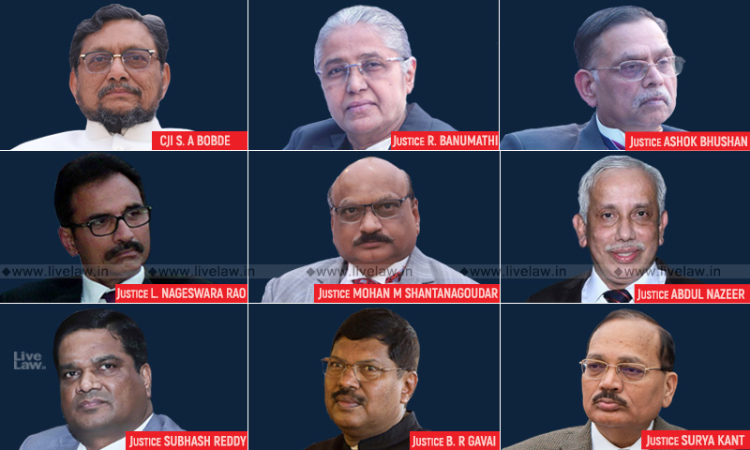The composition of the nine- judge bench which will consider the questions of law referred in the Sabarimala review case is now clear, with the publication of advance causelist for January 13.The bench will comprise :CJI S A BobdeJustice R BanumathiJustice Ashok BhushanJustice L Nageswara RaoJustice Mohan M ShantanagoudarJustice S Abdul NazeerJustice R Subhash ReddyJustice B R GavaiJustice...

